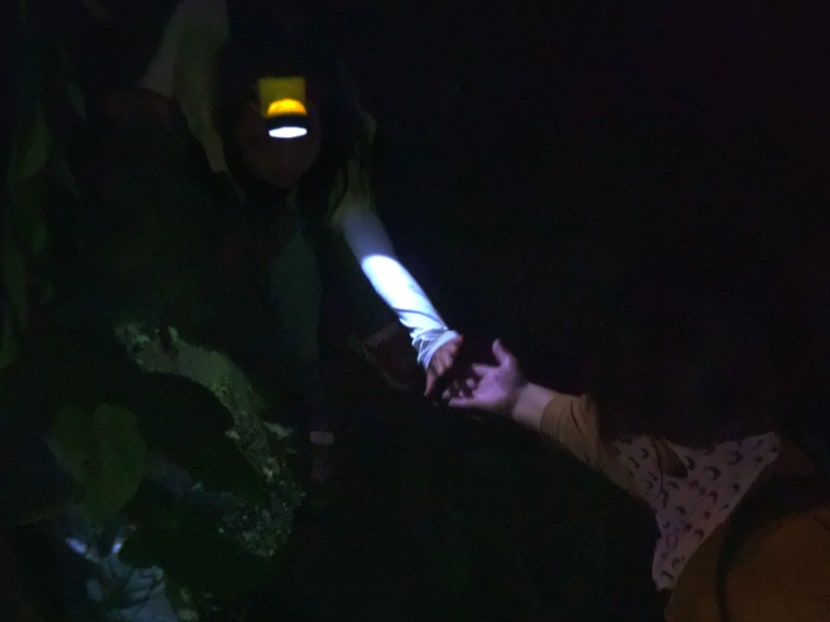What a perilous flight from North Korea tells us about digital connections
NEW YORK — Until last month, I had never met anyone who admitted to carrying suicide pills. That changed when I had the opportunity to meet Madam Yeongbok Woo who, with her husband, two young daughters and 83-year-old mother, escaped from North Korea in 2019.
NEW YORK — Until last month, I had never met anyone who admitted to carrying suicide pills.
That changed when I had the opportunity to meet Madam Yeongbok Woo who, with her husband, two young daughters and 83-year-old mother, escaped from North Korea in 2019.
At an event after the Sundance premiere of Beyond Utopia, a documentary about their tumultuous journey, Mdm Woo calmly reflected that each of the Roh family “had poison with us, to take if we were captured”.
My teenage daughter, who travelled with me to the festival in Utah, recoiled in shock. “How can a mother say that in front of her children?” she whispered.
We pondered the grim answer: If the family had been caught by North Korean authorities, or across the border in China, suicide would probably have seemed a blessed relief compared to their fate at the hands of their captors.
Western media has, of course, been dominated by stories about the impact of Russia’s invasion of Ukraine.
But the absence of North Korea’s geopolitical threat and humanitarian horror from headlines does not mean these things have disappeared.
Quite the opposite, especially since the country’s supreme leader Kim Jong Un appears to be accelerating his nuclear weapons programme.
Not many have escaped to tell the tale of Mr Kim’s brutal repression. Since 1998, an estimated 30,000 citizens have defected from this totalitarian state of 26 million people, usually by crossing the Yalu river into China as the Roh family did.
It has become harder since 2020 because of Covid-19 border controls, a decision by the Chinese authorities to return defectors and a clampdown by the North Korean state on escape routes.
The Roh family are among some of the last people known to have made it out. Their tale deserves wide attention, not simply because it illuminates the human rights horrors, but because it highlights something else: the degree to which digital communications are changing the world, even in a repressive place such as North Korea.
Part of Beyond Utopia was filmed conventionally, with a professional crew.
What makes it remarkable, however, is that some footage was also captured in real time, on mobile phones, as the family fled through the mountains and jungles of China, Cambodia, Laos and Thailand.
Mr Seungeun Kim, a South Korean pastor who masterminded their escape, recorded parts. So did Chinese brokers and the Roh family themselves.
The film contains footage shot inside North Korea, since phones are circulating there too.
“North Korean phones have a memory chip in them so [people] smuggle the chip out,” Pastor Kim says in the film, noting that “it is very risky since, if they are caught, the entire family is killed”.
The resulting footage can be thrilling and shocking in its immediacy. There are videos that show executions and torture.
There is a video call between the terrified Roh family and Pastor Kim, just after they have crossed the Yalu river. “I beg your help — please help us live,” says Mdm Woo, as she hides in darkness in the Changbai mountains, her children weeping next to her.
On a more uplifting note, phone cameras also capture the shocked and delighted faces of the Roh family when they see material luxuries that most of us consider benign.
At the Sundance event, the film’s director Madeleine Gavin made the point that Beyond Utopia was the first film the family had watched in a movie theatre.
This insight into North Korea was previously unattainable, and it raises a tantalising prospect. Might technology and flashes of transparency eventually increase the prospects of change?
Or, at least, help more people escape?
Sadly, other obstacles are growing.
At the festival, Pastor Kim told me that the cost of smuggling defectors out of China has risen tenfold since 2019, to US$30,000 (S$39,200).
“I have 300 people who have contacted me from China wanting to leave, but we don’t have the money. Very few are getting out.”
Even those who do seem torn. Mdm Woo’s mother is a remarkable person to have attempted such a journey in her eighties but, in the film, she praises Mr Kim Jong Un.
And when we spoke, she still seemed unable to bring herself to criticise him. Her daughter and granddaughters had no such scruples.
“When I saw the footage of our escape, it seemed like a bad dream,” Mdm Woo said.
After she told me about the suicide pills, I asked her nine-year-old daughter what she hoped to do when she grew up. “I want to be a Gangnam star!” she said, to laughs of joy and hope. FT










